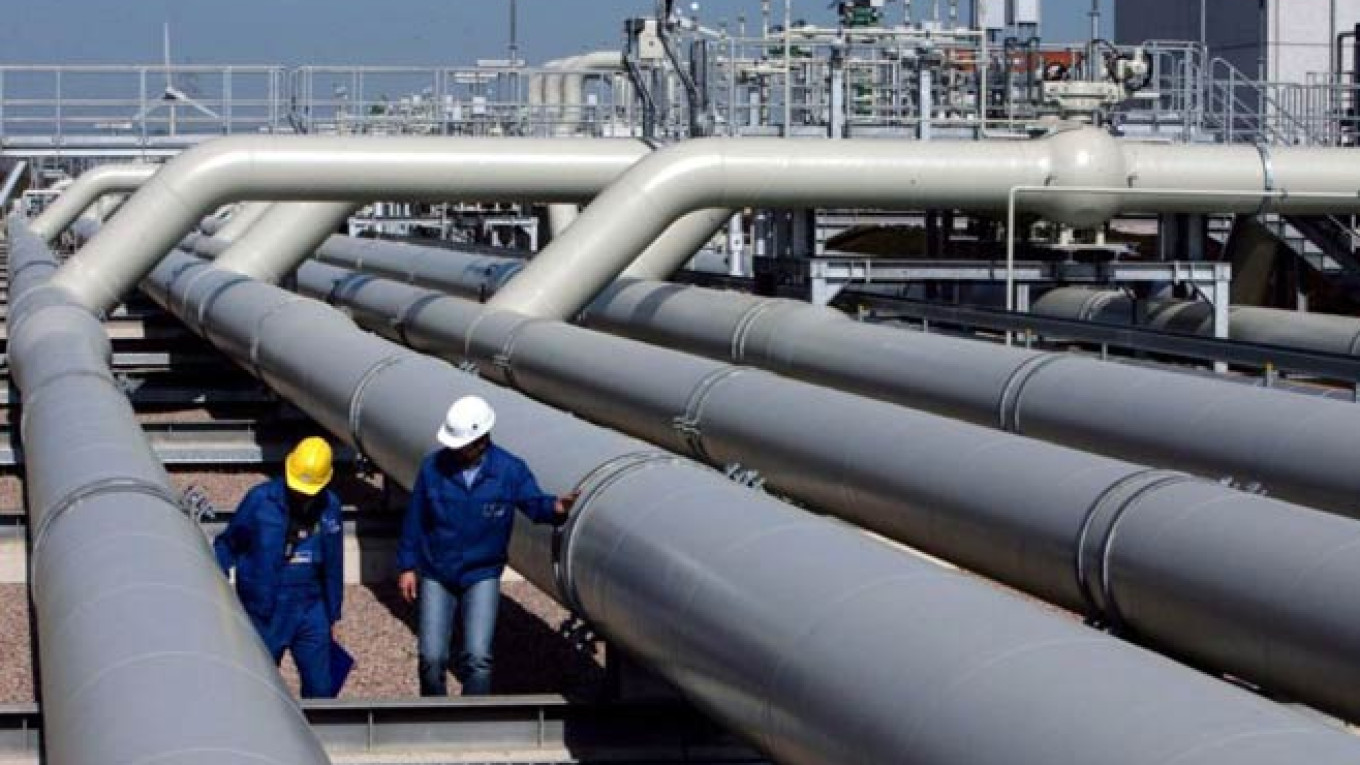Europe is highly concerned about its excessive dependence on Russian natural gas that is transported through Ukraine. In 2013, half of Russian gas sold outside the former Soviet Union went through Ukraine's territory. Last year, Gazprom set a new record by raising its market share in Europe to 30 percent.
There is therefore a common feeling that the ongoing Ukraine crisis could have a negative impact on European energy supplies. Nonetheless, the likelihood of supply cuts is low, and even if it were to happen, it would be short-lived. Dependence on Gazprom is also relative.
Due to diversification of supplies and gas storage, any cuts would not have a significant impact on Europe's security of supply and economic growth.
While a significant portion of Russian gas is still transported via Ukraine, the importance of this transit route has significantly decreased in the past decade. This trend is likely to continue in the years to come as alternative pipelines have come on stream.? The share of Ukraine's transit already decreased from 95 percent in 2008 to 52 percent in 2013, mostly because of the construction of new direct routes such as Nord Stream, Yamal–Europe and Blue Stream, which carries Russian gas from the Beregovaya compressor station, located in the Stavropol region, under the Black Sea into Turkey. The full utilization of already built pipelines might further reduce the share of Russian gas transiting Ukraine to 35 percent of Gazprom's sales in Europe. Europe also has enough reserves to survive a total interruption of supplies via Ukraine's territory for at least a month.
Gazprom managed to improve its performance by cutting prices, not by distorting market mechanisms. European buyers preferred Gazprom's gas to alternative suppliers for price reasons only. Gazprom's price was 20 to 30 percent lower than liquefied natural gas import prices. Furthermore, the construction of interconnectors in the European Union allowed connecting "energy islands," which exclusively depended on Russian gas, to the alternative non-Gazprom supplies.
While crises create instability, they also force all sides to rethink old ties. Brussels, Kiev and Moscow should not miss this opportunity to find new avenues for cooperation, be it the modernization of Ukraine's pipeline system or another alternative project.
Danila Bochkarev is senior fellow at? the EastWest Institute in? Brussels. A? longer version of? the article was published on the EWI website.
A Message from The Moscow Times:
Dear readers,
We are facing unprecedented challenges. Russia's Prosecutor General's Office has designated The Moscow Times as an "undesirable" organization, criminalizing our work and putting our staff at risk of prosecution. This follows our earlier unjust labeling as a "foreign agent."
These actions are direct attempts to silence independent journalism in Russia. The authorities claim our work "discredits the decisions of the Russian leadership." We see things differently: we strive to provide accurate, unbiased reporting on Russia.
We, the journalists of The Moscow Times, refuse to be silenced. But to continue our work, we need your help.
Your support, no matter how small, makes a world of difference. If you can, please support us monthly starting from just $2. It's quick to set up, and every contribution makes a significant impact.
By supporting The Moscow Times, you're defending open, independent journalism in the face of repression. Thank you for standing with us.
Remind me later.


